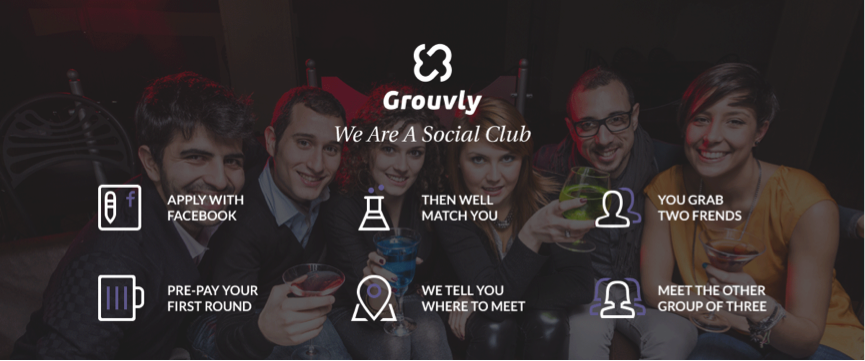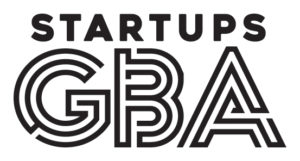
UPDATE: Grouvly will have its invite-only launch party on April 22nd 7-9pm @ a secret location. Here’s how to get an invite. – FULL HOUSE
Grouvly’s Co-founder & CEO Camilo Paredes is a young serial entrepreneur in tech industry with years of experience in emerging markets. Before Grouvly, he co-founded Hellofood.com, a Rocket Internet Venture in Latin America, and Duriana, a C2C Mobile Marketplace in Southeast Asia. His passion for building things from scratch, solving complex problems and the desire of controlling his own fate made him start his entrepreneurial journey.
Having backpacked in Asia for 5 months, Camilo saw a unique opportunity in Asian markets, reason why he decided to stay. After building up Duriana from scratch, Camilo embarked to start the Grouvly concept and launched it in Hong Kong in early January 2015. The company secured US$ 200,000 seed funding from international investors within 4 weeks since its launch.

What is your startup?
Grouvly is a simple and cool concept. We are a social service that sets up drinks between 2 groups of friends: 3 girls & 3 guys.
The concept is quite simple to understand. For instance, if you want to try out Grouvly, first you apply via Facebook – we use the information to match you, and our concierge will manually match you with people you don’t know but should. Next, you invite 2 friends as your wingmen or wingwomen, pre-pay your first round of drinks – it ensures everyone shows up. Then, we tell you where to meet, you meet the other group of 3, and the rest is up to you…
Our mission is to give people a more fun and casual way to meet new people, especially when compared to the creepy, mechanical of browsing and messaging approach in online dating today – Grouvly takes the online decidedly offline, there is no online public profile or chatting – you spend 5 minutes on the site scheduling and then we’ll take care of the rest.
How did you come up with this idea?
I realized there were a few problems still in the dating scene in Asia and thought I could do something to help:
1- People are consumed by their mobile phones: I’ve seen, in countries like Singapore, Hong Kong, and South Korea, groups of friends in bars not talking to each other and instead being glued to their mobile.
2- The dating scene is outdated and doesn’t solve the real problem: Swiping, browsing and messaging keeps people online and makes it extremely hard to finally arrange a meetup with quality people in the real world.
3- Asians in general are more timid and they have hard time to meet new people. Westerners don’t have a problem meeting people, but they do get bored and tired of the same old ways.
That is where Grouvly comes to address these issues. We encourage people to actually meet in the real world by connecting them with 3 people they don’t know, but we think they should. You don’t have to create a public profile and wait for someone to message you. We create an opportunity to make meeting new people fun and casual. The worst-case scenario is that you had a quick drink with friends and some new people or simply had something different to do on a Thursday evening. Best-case scenario, you met your future wife, made business connections, or friends that will last a lifetime.
Who are you targeting and how big is the market in HK/Asia?
We target single, young professionals from 25-36 years old.
There are over 12 million people within these demographics in the countries we plan to roll out.
What are your future plans for your startup?
We plan to evolve the product and increase our presence in other markets. On the product front we will be rolling out mobile apps to increase user engagement. In terms of international expansion, we will be rolling out Grouvly in the coming weeks to Singapore and throughout the year to other key markets in Asia.
1 Benefit and 1 Challenge in the HK startup scene?
1****benefit:
Hong Kong population has a good spending power, high penetration of smartphones and credit cards. It’s smart to tap into it 
1 challenge:
1 challenge I see for startups established here is that Hong Kong is a very expensive city, where the high cost of real estate, human resources and (more dangerously) online user acquisition makes it hard for companies to have a long enough runway to prove their business models.
